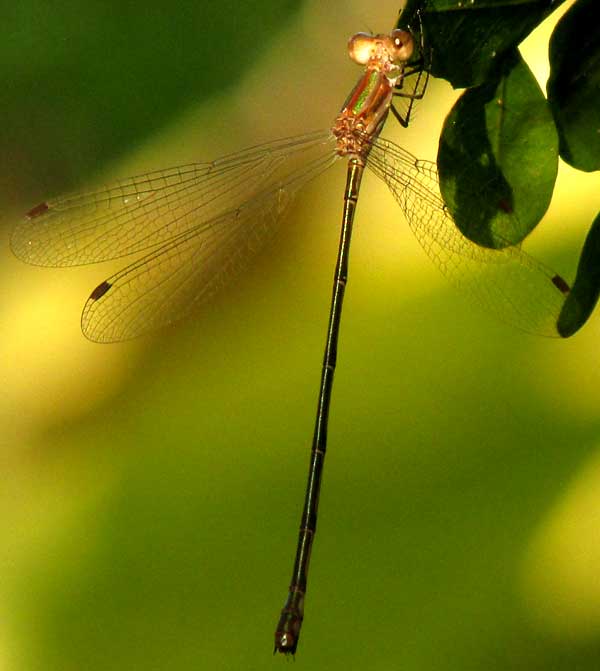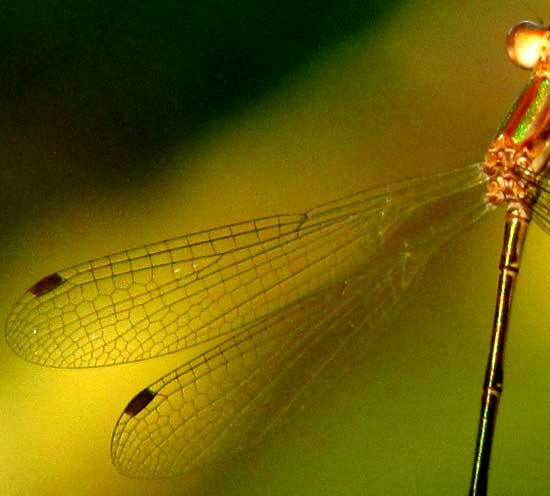Excerpts from Jim Conrad's
Naturalist Newsletter
from the August 2, 2018 Newsletter issued from Rancho Regenesis in the woods ±4kms west of Ek Balam Ruins; elevation ~40m (~130 ft), N~20.876°, W~88.170°; central Yucatán, MÉXICO
SPREADWING OVER THE PIT
The previous evening a small shower had moved through, so at dawn the next morning vegetation all around the hut sparkled with wetness. As I sat munching on my granola breakfast, something looking like a vertical needle being carried on frail, fluttering, silvery wings slowly rose from the deep pit beside and below me, and attached itself to a leaflet of the Whiteseed Manga tree spreading its limbs across most of the pit. You can see the creature below:

We're accustomed to seeing delicately constructed damselflies, but wings on resting damselflies fold over their backs, while here the wings are held outwards, as with dragonflies. However, I'd never seen such a fragile-looking dragonfly, and one with such a slender abdomen that was kept more or less vertical. Thinking I might have a job identifying my visitor, I took the best wing picture I could, since wing venation often is important in dragonfly identification. Below, you can see the picture:

On the Internet, only dragonflies of the genus Lestes, seemed to match the delicate pit-visitor. A good amount of searching failed to turn up a Lestes species matching ours.*
It's very similar to the female Antillean Spreadwing, Lestes spumarius, but I can't find that Caribbean species listed for the Yucatan. A number of Caribbean species of various kinds of organism do occur in the Yucatan and not in the rest of Mexico, so it's possible that this is indeed an Antillean Spreadwing, just that it's not listed as from here. We do have a spreadwing species that might occur here, but it's blue where ours is green.
So, this was a fine observation, and we'll just have to leave it to an expert to elucidate the matter.